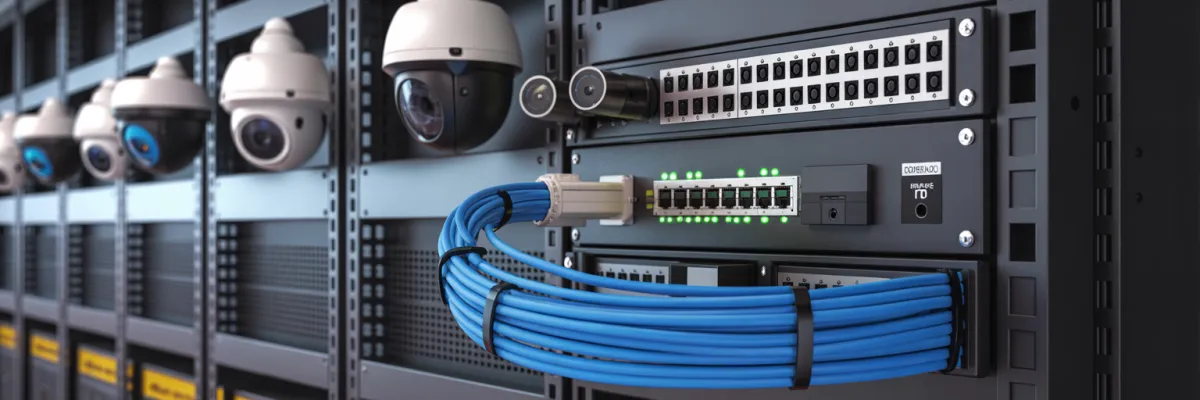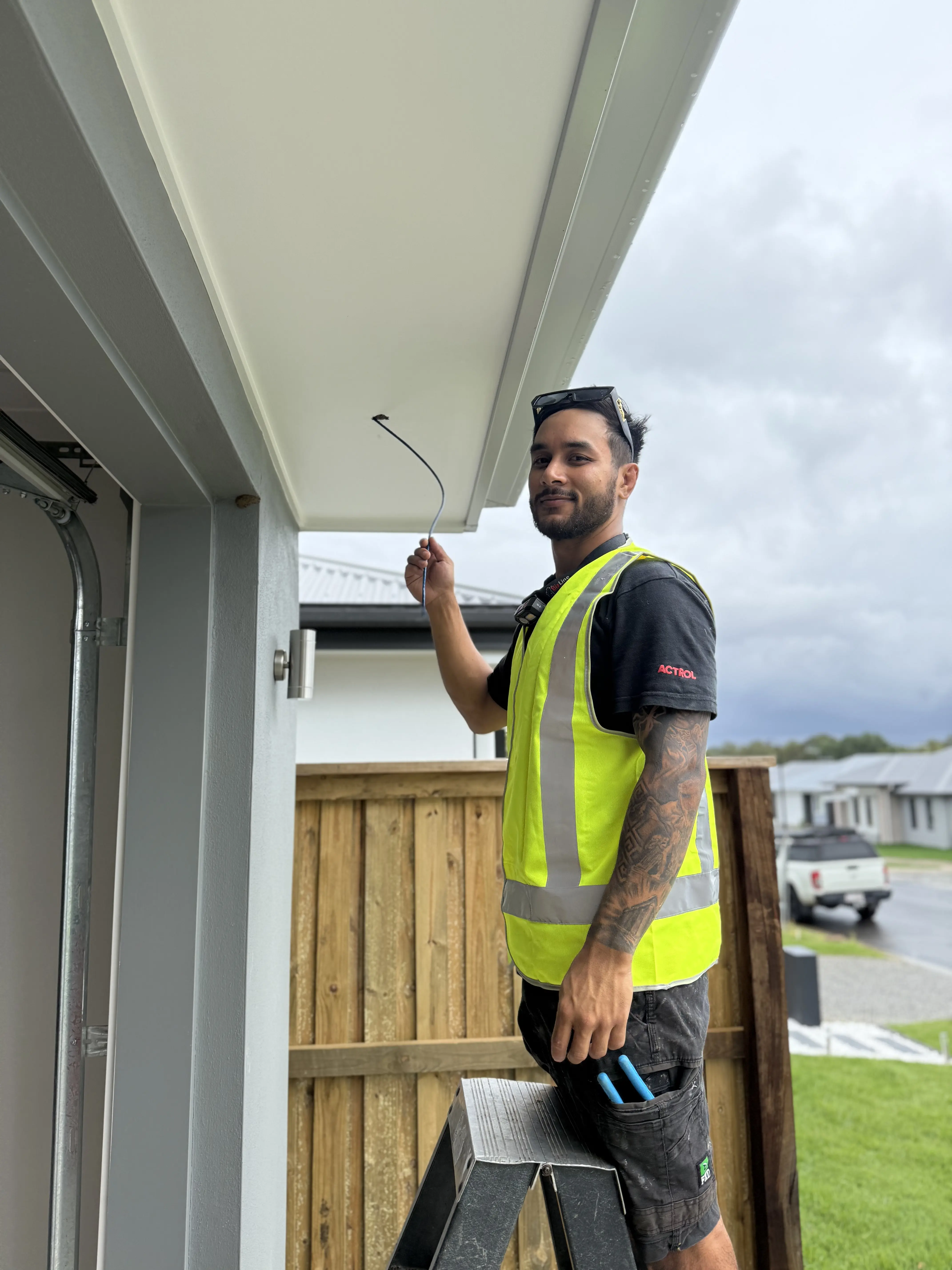
Business CCTV Installation Checklist: Your Complete 2025 Guide
Mark thought he'd done everything right. His Brisbane warehouse had 12 new CCTV cameras professionally installed—until a $50,000 theft revealed none of them captured the loading dock where the crime occurred. The installer had focused on visible areas while missing critical coverage gaps that any thorough site assessment would've identified.
This scenario plays out weekly across Australian businesses. Well-intentioned security installations fail not from equipment problems, but from inadequate planning, poor vendor selection, or skipped implementation steps that seem minor until an incident exposes the gaps.
This comprehensive business CCTV installation checklist guides you through each phase, from pre-installation planning to final system validation, making sure your security investment delivers genuine protection rather than false confidence.
What Should Be Included in a CCTV Installation Checklist?
A comprehensive business CCTV installation checklist should cover all phases from planning through go-live to ensure system effectiveness and legal compliance.
Pre-Installation Planning Checklist
The difference between a CCTV system that actually protects your business and one that just looks impressive comes down to planning. Most installation failures happen before the first camera gets mounted.
Conduct a Comprehensive Site Security Assessment
You can't protect what you haven't identified. Walking your premises with a security mindset reveals vulnerabilities that aren't obvious during normal business operations.
Start at every entry and exit point—front doors, back doors, loading docks, emergency exits. Think about where valuable inventory sits, where cash gets handled, where expensive equipment lives.
For retail businesses in areas like Queen Street Mall or Carindale, focus on point-of-sale areas, change rooms, stockrooms, and customer flow paths. Warehouse operations in Eagle Farm or Lytton need coverage of loading docks, inventory storage zones, and vehicle access points. Brisbane CBD offices often overlook parking structures—until an employee's car gets broken into.
Walk your premises at different times of day. That perfect camera angle at 2pm might be completely washed out by afternoon sun glare, or pitch black at night.
Document everything during this assessment. Take photos, sketch rough layouts, note problem areas. If an installer doesn't ask detailed questions about your specific vulnerabilities, that's your first red flag.
Evaluate Network Infrastructure Readiness
Modern IP camera systems eat bandwidth. A single 4MP camera recording 24/7 generates roughly 1-2 TB of data monthly. NBN connections common in Brisbane commercial areas vary in quality. If you're planning cloud storage or remote monitoring, your internet connection needs enough upload speed without impacting other business operations.
Power over Ethernet (PoE) simplifies installation but requires commercial-grade network equipment. Brisbane's subtropical environment creates additional considerations—equipment rooms need proper cooling, and outdoor camera runs need weatherproofing and surge protection.
Determine Storage and Retention Requirements
Queensland law requires commercial premises to retain CCTV footage for at least 30 days. But insurance claims and legal proceedings often require footage from months earlier.
Local storage via NVR gives you complete control and no monthly fees. Cloud storage costs more over time but keeps footage safe even if someone destroys on-site equipment. For a 12-camera system with 30-day cloud retention, expect $100-300 monthly.
Hybrid approaches make sense—store everything locally and backup critical cameras to cloud for redundancy.

Legal Compliance & Regulatory Checklist
Installing cameras without understanding Queensland's legal framework is expensive. Brisbane businesses get caught in compliance violations regularly, usually because they assumed "it's my property, I can monitor it however I want."
Queensland Privacy Act Compliance
You cannot monitor toilets, change rooms, break rooms where employees have a reasonable expectation of privacy, or areas where people are in states of undress. Queensland requires all-party consent for audio recording—stick with video-only.
Signage requirements aren't optional. You must clearly notify people that surveillance is occurring before they enter monitored areas. Your signage should identify your business name and provide contact information for privacy inquiries.
Fair Work regulations require you to consult with employees before implementing workplace surveillance. Give employees at least 14 days notice, explain why you're implementing surveillance, what areas are monitored, and how footage will be used.
Non-compliance penalties are serious. Businesses face fines up to $2.2 million under current privacy legislation.
Council Permits and Local Regulations
Brisbane City Council doesn't require permits for most internal camera installations, but external surveillance often triggers approval requirements. External cameras need permits when they're visible from public spaces or capture footage beyond your property boundaries.
Heritage area restrictions add complexity for Brisbane CBD businesses. The approval process takes 4-6 weeks typically, heritage approvals can stretch to 8-12 weeks.
If you lease commercial space, your lease probably requires landlord approval for security installations. Get written approvals before installation.
Vendor Selection & Contract Checklist
The cheapest quote usually becomes the most expensive mistake when cameras fail, coverage gaps appear, or the installer disappears when you need support.
Verify Installer Credentials and Experience
ASIAL accreditation is your starting point. ASIAL-certified installers have met industry standards, carry proper insurance, and follow professional practices.
Electrical licenses matter for commercial installations. Unlicensed electrical work creates safety hazards and might void your building insurance.
Brisbane commercial portfolio verification tells you whether an installer actually works with businesses like yours. Request specific examples and call references to ask: Did installation happen on schedule? How's the system performing months later? How responsive is the company for support issues?
Installers need public liability insurance (minimum $10 million coverage) and professional indemnity insurance.
Compare Quotes and Scope of Work
Request detailed quotes from at least three qualified installers. Detailed quotes itemize specific equipment models and quantities, labor hours and rates, cable lengths and types, network equipment requirements, installation timeline, warranty terms, and training inclusion.
Hidden costs kill budgets. Watch for quotes that don't include cable runs beyond basic distances, network equipment upgrades, permit fees, or after-hours installation if needed.
Don't just compare camera counts—compare specifications. Resolution, night vision range, weatherproofing ratings, warranty terms, and local parts availability all affect long-term value.
Technical Specifications Checklist
Technical specifications determine whether your CCTV system actually captures usable evidence or just records blurry shapes you can't identify.
Select Appropriate Camera Types
Dome cameras work best for indoor environments where you want discreet monitoring. Bullet cameras suit outdoor applications and areas where you want visible deterrence. PTZ cameras offer flexibility but they're expensive and can't cover multiple areas simultaneously.
Outdoor cameras need proper weatherproofing—IP66 minimum for rain protection, IP67 for Brisbane's humid subtropical conditions. Indoor-rated cameras installed outside fail within months.
4MP cameras offer a sweet spot for most Brisbane commercial applications—enough detail for facial identification up to 15 meters, reasonable storage requirements. 8MP cameras provide exceptional detail but generate massive storage requirements—use these selectively for critical areas.
Night vision range specifications are often optimistic—expect real-world performance to be 60-70% of advertised range.
Determine Recording and Storage Systems
Network Video Recorders (NVR) work with IP cameras and are the standard for modern commercial installations. For commercial installations storing 30+ days of footage, RAID protection isn't optional—it's insurance against losing critical evidence to hardware failure.
H.265 compression provides 30-50% better compression than H.264, meaning the same storage capacity holds more footage. For new installations with modern equipment, H.265 makes sense.
Plan Remote Access and Monitoring Capabilities
Quality mobile apps let you view live cameras, scrub through recorded footage, receive push notifications, and control PTZ cameras from your phone. Test apps before committing to equipment.
Alert and notification customization prevents alert fatigue. You want notifications for motion in your stockroom at 2am, not for employees walking past during business hours.
User permission levels matter for businesses with multiple staff members. Document who has what access level and why. Overly broad access creates risk.
Installation Day Checklist
Installation day separates professional commercial installers from amateurs. Proper preparation prevents most installation problems before the crew arrives.
Pre-Installation Preparation
Employees need advance warning about installation schedules—send written notifications at least 48 hours before installation begins. Clear spaces where installers need access and protect inventory near drilling areas.
For Brisbane CBD office buildings or shopping center tenants, building management often requires contractors to register and obtain access passes. Handle these administrative requirements before installation day.
Designate a point person on-site during installation with authority to answer questions and approve minor modifications.
Quality Control During Installation
Cables should run neatly through conduit or cable trays, not draped loosely. Professional installers secure cables properly, label everything, and create installations that look intentional.
Before installers permanently mount cameras, have them show you the actual view on a laptop or tablet. Adjusting position before mounting takes minutes. Moving cameras after installation wastes hours.
Final Walkthrough and Acceptance
Have the installer walk you through the complete evidence retrieval process: searching for specific timeframes, finding motion events, exporting clips in formats your insurance company or police can view.
Minimum two staff members should receive complete training—if only one person knows how to operate the system and they're unavailable during an incident, your investment becomes useless.
Don't sign final acceptance until you're satisfied everything works as promised. Final payment releases your leverage.

Common Installation Mistakes to Avoid
Inadequate lighting consideration happens when businesses test cameras during daylight and assume night vision will handle darkness. Night vision has distance limits—typically 20-30 meters in real-world conditions.
Camera placement too high or wrong angles creates footage showing the tops of people's heads instead of faces. Entrance cameras need positioning at 2-3 meters height aimed slightly downward.
Insufficient bandwidth allocation occurs when businesses add 12 IP cameras to networks already running at capacity. During peak usage, recording quality drops or cameras disconnect entirely.
Neglecting weatherproofing in Brisbane's climate leaves outdoor cameras vulnerable to moisture damage within months. Every outdoor connection point needs proper IP66+ rated weatherproofing.
No backup power consideration means systems fail completely during power outages. Brisbane storms cause regular power disruptions. Commercial CCTV systems need UPS backup providing at least 2-4 hours of operation during outages.
Ready to Implement Your CCTV System the Right Way?
This business CCTV installation checklist covers everything you need to know, but most Brisbane business owners realize quickly that professional guidance saves time, money, and frustration compared to navigating this process alone.
Get a Free, No-Obligation Consultation
Schedule a consultation with our Brisbane-based security experts. We'll assess your specific requirements and provide a detailed quote—transparent pricing with no hidden costs.
Contact Us Today
📞 Call: +61409809577 / 0409809577
📧 Email: [email protected]


